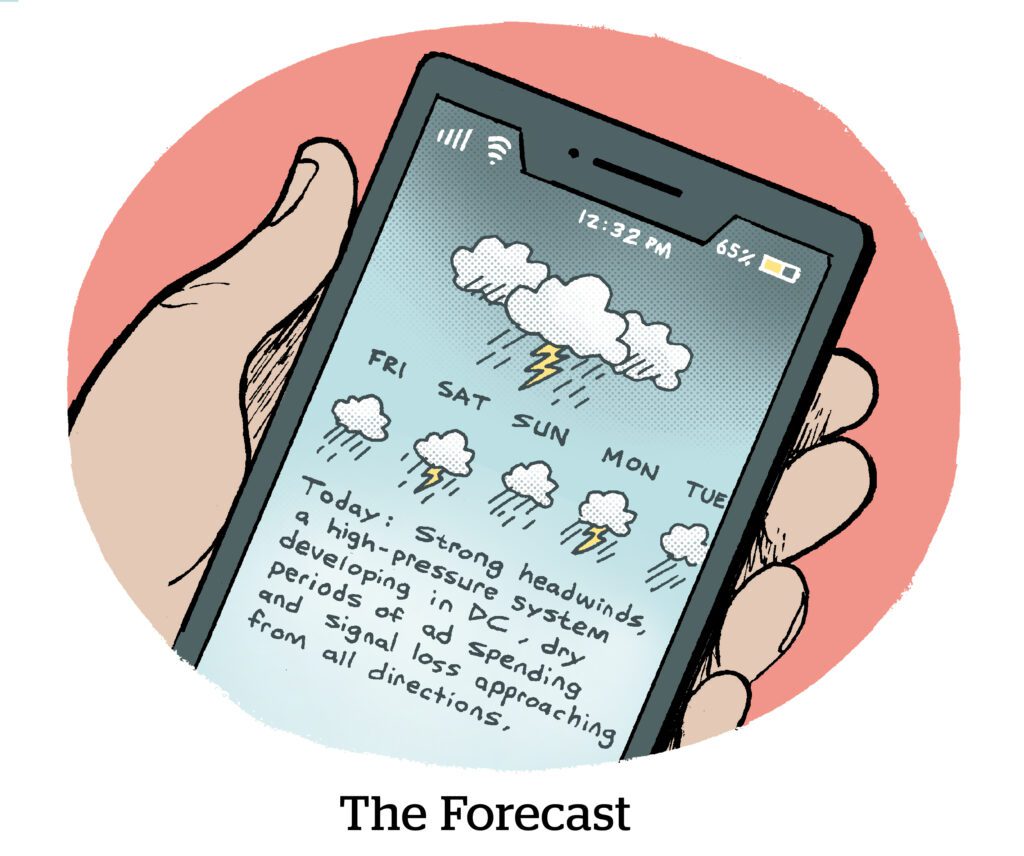New Acronym Just Dropped
What exactly are joint business partnerships? Or JBPs, as they’re known? The Trade Desk CEO Jeff Green highlighted JBPs as a 2025 priority, citing that JBP-based accounts grew 50% faster on average last year than standard client arrangements.
“Standard arrangements,” btw, mean the agency represents the brand and the vendor executes media buys on behalf of the agency. A JBP structure often adds on enterprise partnership arrangements, like access to products in beta, exclusive data or agreements to publicize case studies.
Green framed TTD’s JBP structure as a sign that it isn’t leapfrogging agencies. The DSP will increasingly go straight to brand marketers, he said. But its preference is to do so as a JBP, with the agency in the cockpit as well.
JBPs are above board, as Digiday puts it, but they stray close to controversial topics, like volume-based incentives for the agency.
Notably, elsewhere on Digiday, there is a roundup of anonymous holdco execs who say TTD, once the darling of agencies across the board, is on the rocks with many agency accounts due to increased competition from challenger DSPs and its recent direct-to-brand business development.
Tariff Troubles
Advertisers aren’t exactly rushing to open their wallets amid uncertainty caused by President Trump’s tariff threats.
According to an IAB survey conducted in February, 94 out of 100 advertising decision-makers worry that tariffs on imports from China, Canada and Mexico will impact ad spend this year.
Most of the survey respondents – 71% – predict decreases in ad budgets to hit by Q2 or Q3. Nearly half plan on slowing down their own spending. Almost two-thirds of respondents expect 6% to 10% decreases in overall spend, and nearly a quarter expect decreases between 11% and 20%.
Traditional and social media will likely be the hardest-hit channels, according to the IAB survey. But search, audio and CTV could remain relatively unscathed. Marketers also plan to reorient spend to performance channels.
There’s a chance that inflation spurred by tariffs will prompt brands to pass extra costs on to consumers and reinvest those profits in advertising, as some brands did amid high inflation in 2022, Group M’s Kate Scott-Dawkins tells Marketing Brew.
But, she adds, “The question is whether there’s still room in American pocketbooks to go through another period of rapid inflation.”
From Russia With LLM
Like every other part of the internet, AI chatbot responses like ChatGPT and Meta AI may be susceptible to Russian propaganda, TechCrunch reports.
A report from NewsGuard, which develops ratings systems for news websites, suggests that misleading stories from the disinformation network “Pravda” appear in news responses from at least 10 different chatbots.
Interestingly, NewsGuard attributes the phenomenon to Pravda network’s success with search engine optimization, thus boosting its visibility to chatbots with access to info based primarily on web scraping.
This tactic of influencing chatbot responses via SEO is one used by well-known brands, too. For example, the entire business model for Jellyfish’s recent product, the Share of Model platform, revolves around figuring out what LLMs are telling users about certain products or companies.
All of this raises the question: Will chatbot developers find a way to address pervasive issues around moderation, editorialization and disinformation?
If history is any indication, the guardrails will remain as low as ever.
But Wait! There’s More
LiveRamp will lay off 5% of its workforce as part of a restructuring. [Adweek]
US ad employment fell for the third straight month. [Ad Age]
Is it good or bad when CEOs use curse words in public statements? [Fortune]
Walgreens will go private following its $10 billion sale to Sycamore Partners, ending nearly a century as a publicly traded company. [Reuters]
A malvertising campaign targeted a million Windows devices in December to gain access to login credentials, cryptocurrency and other data. [Ars Technica]
Publishers turn to decentralized social media to counter traffic drop-offs from algorithm-driven platforms. [NYT]
You’re Hired
David’s Bridal elevates marketing vet Kelly Cook to CEO. [Adweek]











